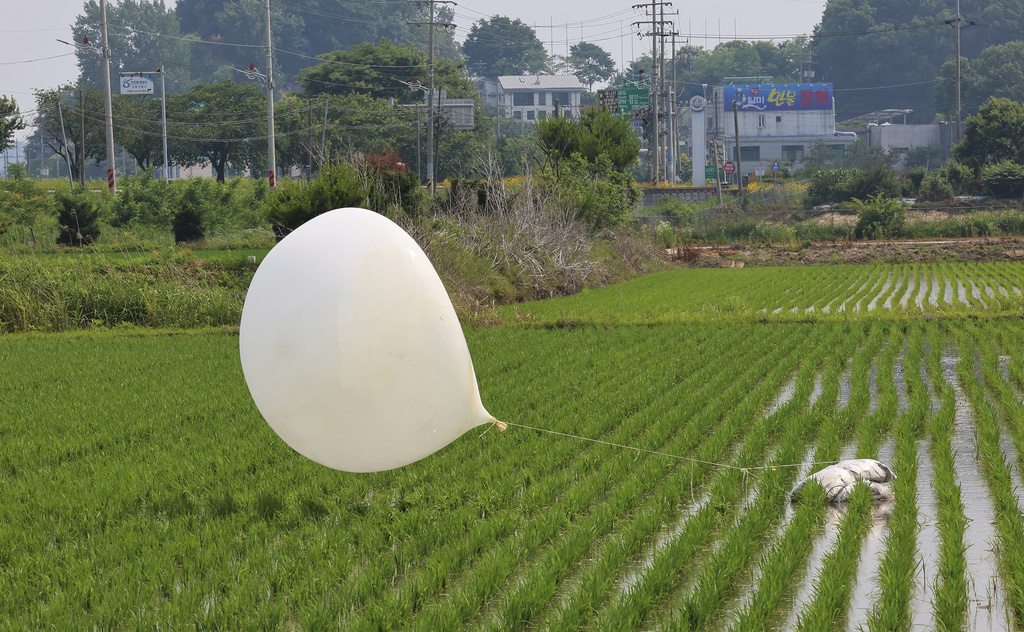SEOUL (AFP) – North Korea has sent hundreds more trash-filled balloons southward, Seoul’s military said Tuesday, the latest in a series of border barrages that have sparked a tit-for-tat propoganda campaign.
Pyongyang launched about 350 balloons Monday evening, Seoul’s Joint Chiefs of Staff said, adding that around 100 had landed in the South, mainly in northern Gyeonggi province and the capital Seoul.
The bags attached to the balloons contained “mostly paper waste”, the military said, adding that they posed no safety risk to the public, according to their analysis.
“The South Korean military is ready to carry out its psychological warfare immediately,” the JCS said, adding the response “all depends on North Korea’s actions”.

South Korean President Yoon Suk Yeol said the North’s latest round of trash-carrying balloons was a “despicable and irrational provocation” at a speech marking the anniversary of the start of the Korean War.
He slammed a deal between Pyongyang and Moscow, signed last week by Russian President Vladimir Putin during a state visit to North Korea, as a “blatant violation of UN Security Council resolutions”,
“Our military will maintain a steadfast readiness to ensure that North Korea does not dare to challenge South Korea under any circumstances and will respond overwhelmingly and decisively to any provocations from the North,” Yoon added.
Pyongyang has already sent more than a thousand balloons carrying trash southward in what it says is retaliation for balloons carrying anti-regime propaganda floated north by activists.
In response, Seoul has fully suspended a tension-reducing military deal and restarted some propaganda broadcasts from loudspeakers along the border.
North Korean leader Kim Jong Un’s sister and key government spokeswoman Kim Yo Jong warned earlier this month that if the leaflet drops and loudspeaker broadcasts continued, Seoul would “undoubtedly witness the new counteraction of the DPRK”.
Experts said border tensions could potentially escalate quickly.
“Since the South has met the first condition — which is the leaflet scattering — if the government were to resume loudspeakers, we would likely see the ‘new counteraction’ that was mentioned,” said Park Won-gon, a professor at Ewha Womens University.



















































